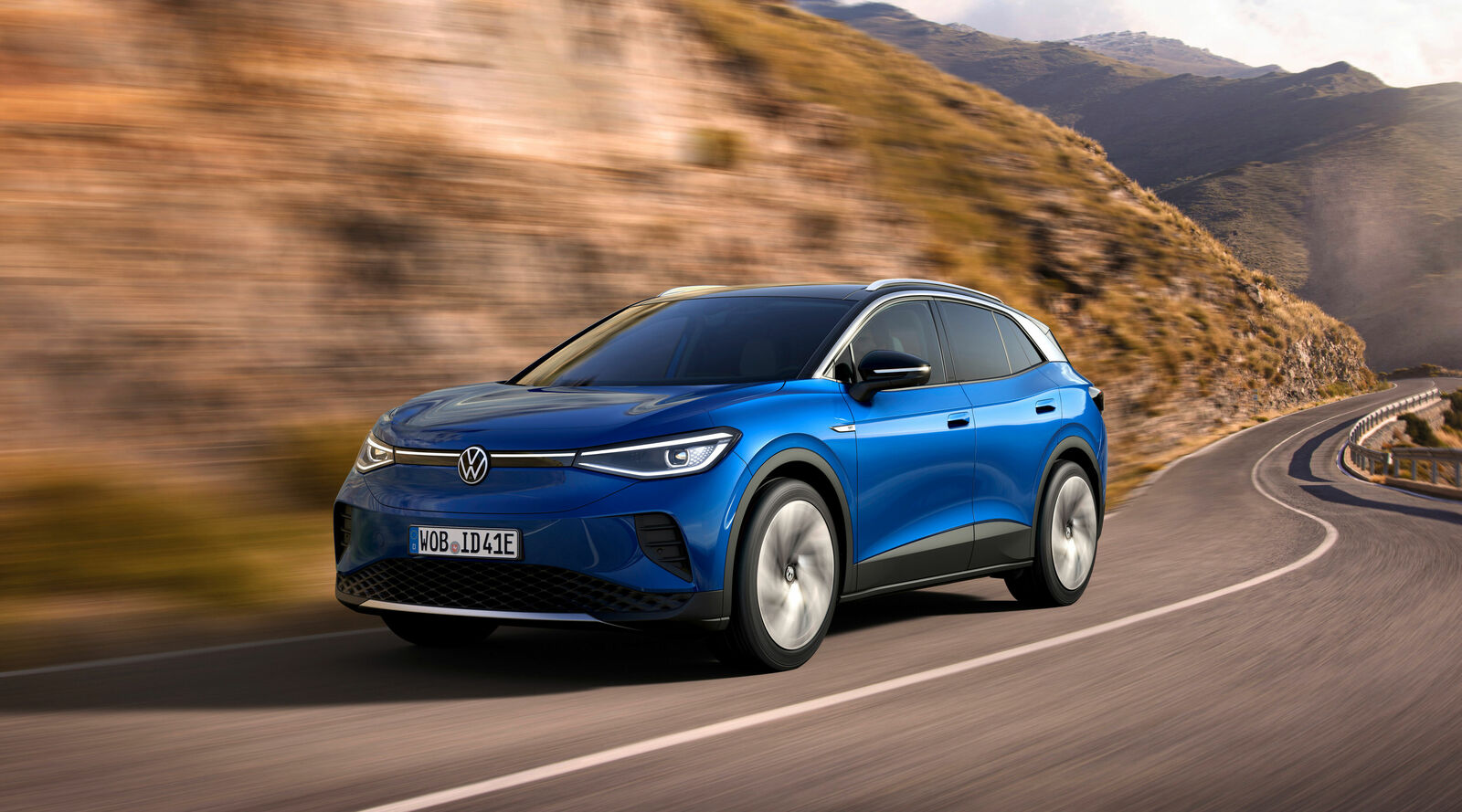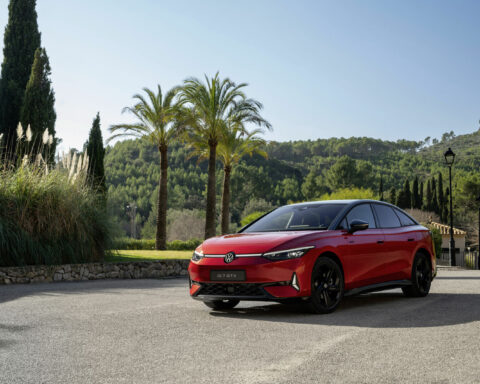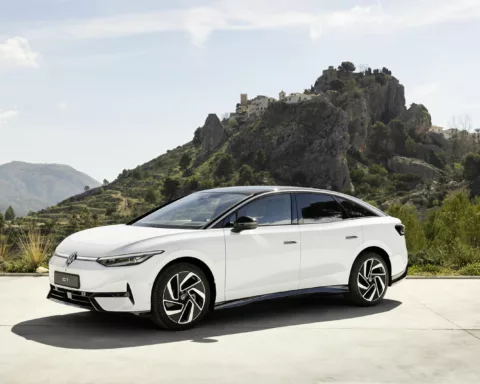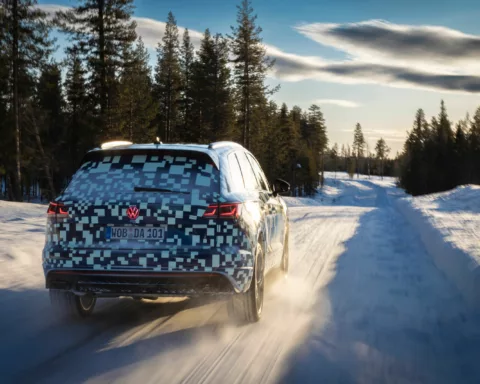Volkswagen wants to become the most sought-after brand for sustainable mobility – which is why our vehicles and car-related services are undergoing fundamental changes. And how is the transformation being accelerated? We explain the four cornerstones here.
1. Volkswagen – Electrification
More than 70 percent of cars in Europe to be electric by 2030
Volkswagen is significantly accelerating its e-offensive again: by 2030, the percentage of cars sold in Europe with all-electric drives will have risen to over 70 percent – that is twice as much as was previously planned. In that same period, every second Volkswagen in the USA and China will be all-electric.
At least one new e-model per year from now
Up to 2030, Volkswagen will launch at least one new electric model each year: kicking things off in 2021 was the all-wheel drive ID.4 GTX02, followed by the sporty ID.503. In the autumn, the ID.6 X / CROZZ04sees the introduction of a six / seven-seater electric SUV for the Chinese market. By 2023, Volkswagen will offer a total of eight ID. models in the key market that is China. The plans for a compact, particularly cheap electric car to slot in below the ID.3 have been delayed by two years – to 2025.
16 billion euros of investment in e-mobility, hybridisation and digitalisation
In order to be able to shoulder the high level of investment in the future of mobility, the company is working consistently on its efficiency and productivity with ACCELERATE. The targeted operative margin of at least six percent will be achieved by 2023 and secured sustainably beyond that.
2. Software-defined product
500,000 fully-connected ID. models around the world by 2023
By as early as 2023, half a million fully-connected ID. vehicles will be on the streets, allowing Volkswagen to transform direct customer feedback into improved and new functions. Volkswagen has also founded the flexible project unit ID.Digital, which will provide updates “over the air” in a twelve-weekly rhythm. This ensures that the car is always up to date across the entire life cycle, and that it is constantly being improved by new functions.
“On demand” functions can also be booked
Future vehicle generations are being produced with significantly fewer variants. The individual configuration is no longer determined by the hardware when purchasing the car. It basically already has everything on board. The customer can add desired functions at any time, “on demand”, via the digital ecosystem in the car.
3. New business model
New subscription model for ID. models
At the start of September, Volkswagen launched the AutoAbo in Germany. The AutoAbo for the all-electric ID.3 and ID.4 model is available with three-month and six-month minimum subscription periods. Thereafter, customers can terminate their subscription whenever they wish. The contract covers everything except electricity – 800 kilometres per month and a full-service package with registration, roadworthiness tests, maintenance and servicing, insurance and road tax. The AutoAbo thus allows even greater flexibility for the customers and is an important milestone for the Business Model 2.0.
100 percent online purchasing process on its way
A few months after the start of the AutoAbo, Volkswagen will also offer leasing and sales closures online – initially for models in the ID. family and then also for new and used rolling stock with every type of drive. Dealers and their cars will be fully integrated in Volkswagen’s central digital






